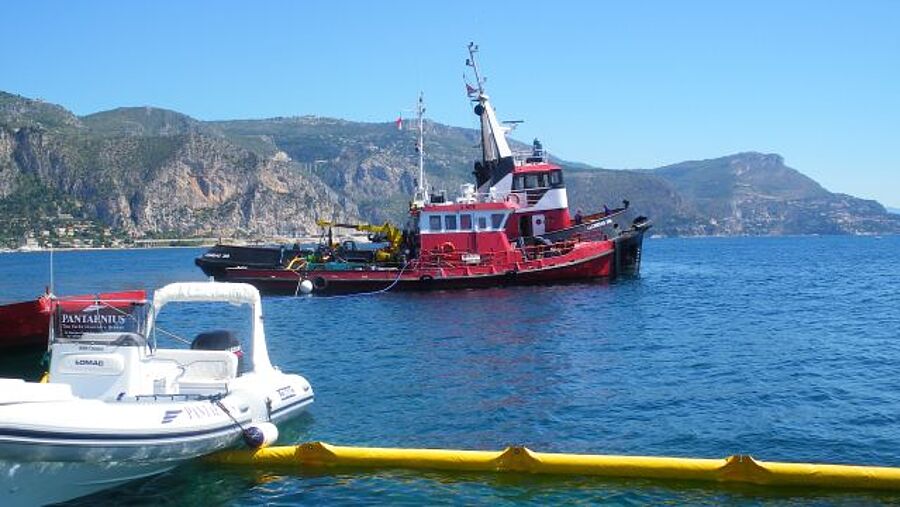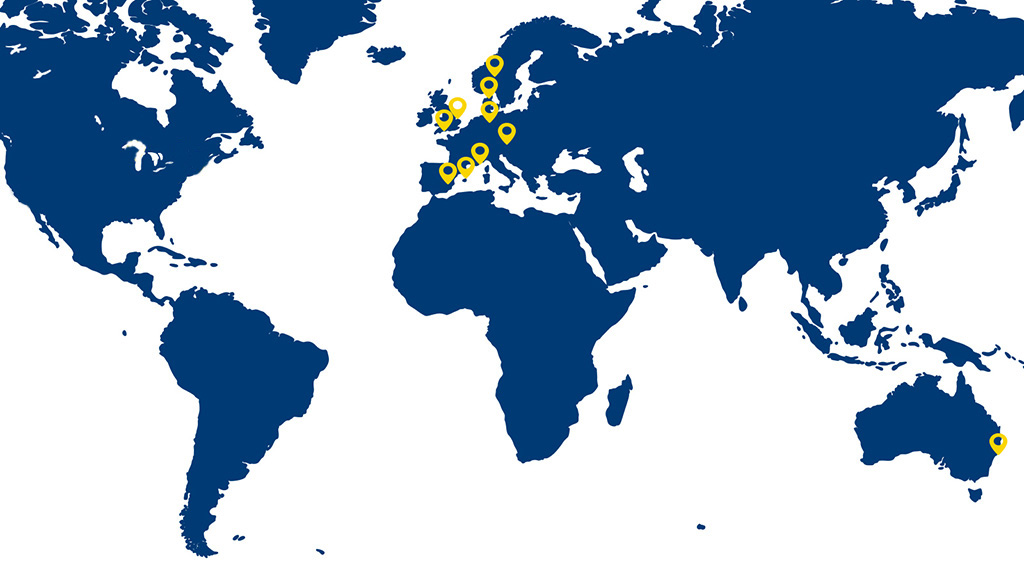Salvage, salvage fees and towing assistance - When third parties help and tow your boat
Sudden engine failure? Drifting towards the beach, unable to manoeuvre? Then you need to act fast! And sometimes even towing assistance may be necessary. But salvage can entail a fee. What you need to know about towing.

What to do if the boat is unable to manoeuvre
- Keep calm!
- Drop anchor if that is possible in the specific situation and location. This keeps the boat in place and allows time to plan the next steps. Maybe the engine can be checked and restarted? Maybe only the fuel tank is empty?
- Is the boat a sailboat? If conditions permit, try to set sail and use the power of the wind to get out of the emergency situation.
- If it is not possible to set sail, ask incoming or departing boats for help. Alternatively, call the nearest marina or charter company and ask for towing assistance. The Pantaenius Helpline is available to customers around the clock. Pantaenius has an extensive network that includes a number of reputable salvage companies that can be called upon at short notice.
- Do not sign anything and do not commit to a salvage fee! If the salvor insists on an agreement, choose the "Lloyds Open Form" contract. If you are unsure, do not hesitate to call the Pantaenius Helpline.
Customers can reach the Pantaenius Helpline Monday to Friday from 8am to 6pm Western European Time at +49 40 37 09 10 and in case of emergency around the clock at +49 40 37 09 13 70.
Rescue by the DGzRS
Rescue operations in the event of distress at sea, i.e. when the ship and/or crew are in immediate danger, are always free of charge. However, if the sea rescuers of the German Maritime Search and Rescue Service (DGzRS) provide only technical assistance in a non-hazardous situation, such as towing assistance, the DGzRS demands a proportional reimbursement of their operational costs. The amount ranges from 200 Euros to a maximum of 400 Euros for operations lasting up to one hour. If required, Pantaenius will take over this donation to the volunteer rescuers of the DGzRS.
Keep calm if you cannot manoeuvre
Engine failure can have many causes. Sometimes the fuel tank is simply empty. Alternatively, failure is often due to poor maintenance of the engine system. A tank contaminated with water or dirt can cause serious engine problems. If the tank has not been carefully cleaned over the winter, it is possible that particles enter the fuel pipe and clog it. Defective fuel pipes, leaky filters or broken valves can also lead to engine failure.
The most important thing is to stay calm, even if you cannot manoeuvre. If you are not in an acutely dangerous situation, you should take the time - if it is safe to do so in the particular situation and location - to briefly anchor and think about what to do next. (Read article: Anchor correctly). At anchor you can take the time to inspect the engine and, with a little luck, get it running again. A sailing yacht may be able to enter the harbour under sail - perhaps with reduced sail area. If you are close to a harbour, you can call the harbour master or the charter company and ask for towing assistance.
It is best to research and make a note of the emergency towing numbers ahead of time. If you are sailing close to the coast, you can call the lifeguards or the water police. For trips on smaller rivers, it is worth doing an internet search to find out the nearest contact points in advance.
Emergency calls only in acute danger
However, if you find yourself unable to manoeuvre in a dangerous situation, for example in a commercial shipping channel, you will have little time to react. In such a case, you should alert nearby boaters to your situation as soon as possible and ask for help. One well-known method for this is to stand on the foredeck and wave vigorously with mooring ropes. It is also possible to contact other skippers on VHF channel 16.
Ideally, you should have a floating towline with you that is suitable for the weight of the yacht. It should have some flexibility (stretch) to absorb load peaks. The longer the line, the greater the suspension travel. If there is a swell when towing the boat, the length of the line should equal one wave period, so that both boats can steer up or down a wave at the same time. The load must be distributed to avoid damage. A bridle attached to both bow cleats, to which the towing line is then attached, can be helpful.
Salvage fees - High prices for salvage
Anyone who successfully helps another out of a maritime emergency can claim salvage. The amount of salvage is determined by criteria such as the value of the salvage, the effort and risk of the salvor, the weather and regional conditions, and the salvage operation. Ships are sometimes arrested in order to secure payment. In the worst cases, negotiations over the final salvage fee can drag on for years. Unfortunately, in such cases it is often unavoidable for the insurer to provide guarantees to get the vessel off the chain.
Never negotiate salvage fees
As it is difficult for a layman to assess the aforementioned criteria of a salvage, Pantaenius strongly advises owners not to negotiate a salvage fee. Under no circumstances should owners discuss specific amounts, talk about the value of the vessel or sign an agreement. Rather, owners should contact their insurer as soon as possible and let the insurer negotiate. The Pantaenius claims department, for example, is available 24 hours a day, has vast experience in dealing with such situations and has an extensive network that includes reputable salvage companies.
Caution! Private salvage companies often try to base their salvage fee on the value of the vessel rather than on their own efforts.
A hull insurance policy will protect you from this. It should cover the salvage costs without any limit The hull insurer would also settle any legal disputes with the salvor and take over bonds that had to be deposited in order to release the vessel. However, the insurers’ terms can vary considerably. Checking the fine print can therefore be worth the effort!
Agree on Lloyd's Open Form
If the situation is an acute emergency and the salvor insists on an immediate agreement, it is advisable to agree exclusively on the so-called "Lloyd's Open Form" (LOF). This open form of contract has international validity and can even be agreed by simple acclamation. The LOF also contains an arbitration agreement on a "no cure - no pay" basis, which provides greater legal certainty in the event of later disputes.
